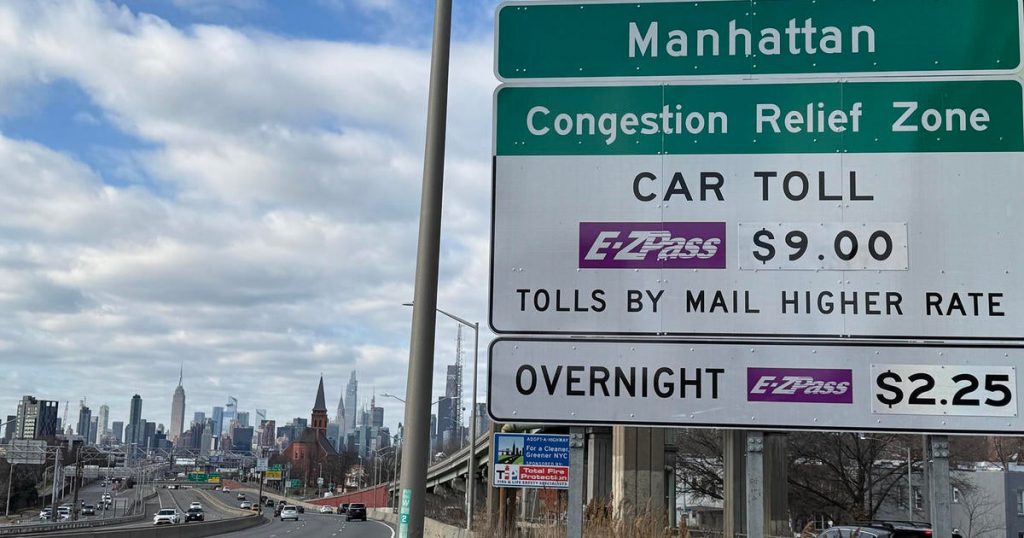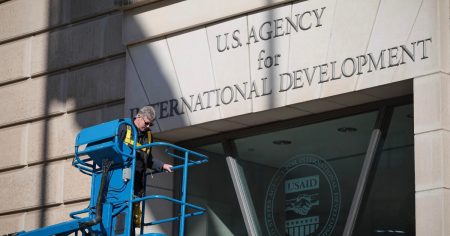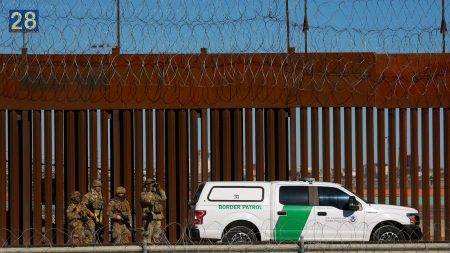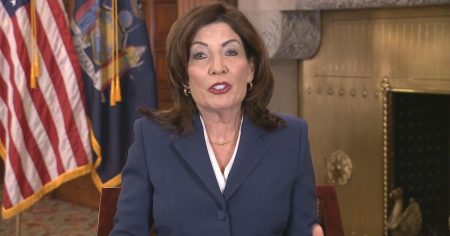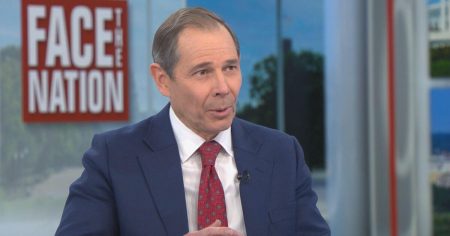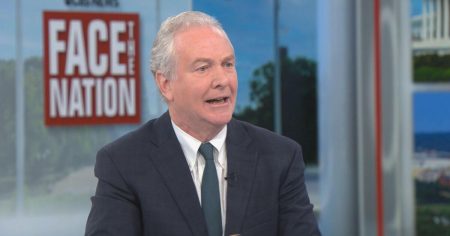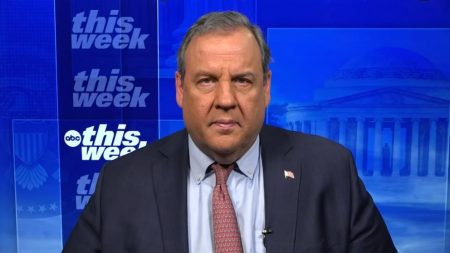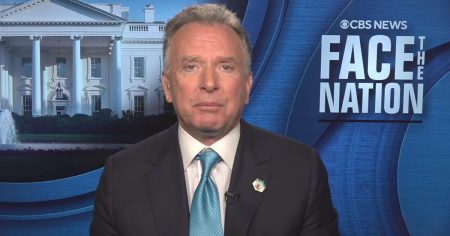A Clash Over Congestion Pricing: Gov. Hochul Takes On Trump
New York Governor Kathy Hochul has vowed to challenge President Trump’s decision to terminate the state’s congestion pricing plan, a policy aimed at reducing traffic in Manhattan’s Central Business District (CBD). The Trump administration, through the U.S. Department of Transportation, announced the termination of the program just weeks after its January 2023 implementation. This move, criticized by Hochul as an overreach of federal authority, has sparked a heated debate over state sovereignty, economic impact, and urban mobility. With the MTA (Metropolitan Transportation Authority) filing legal papers to keep the program alive, the stage is set for a significant legal battle between New York and the federal government.
Trump Administration’s Case Against Congestion Pricing
The Trump administration’s decision to end congestion pricing was justified by Transportation Secretary Sean Duffy, who labeled the program "backwards and unfair." Duffy argued that the plan unfairly burdens working-class Americans and small business owners, as drivers already pay gas taxes to maintain highways. He emphasized that the program eliminates free highway alternatives, forcing drivers to pay additional tolls to access Manhattan’s CBD. Trump, in a social media post, celebrated the decision, declaring, "Congestion pricing is dead," and "Long live the king," a statement that drew sharp criticism from Hochul. Opponents of the program, including small business owners and commuters from neighboring states, have echoed these concerns, arguing that the tolls disproportionately affect those who rely on road access for their livelihoods.
Hochul and Allies Defend Congestion Pricing
Gov. Hochul and supporters of congestion pricing have pushed back aggressively against the Trump administration’s decision. Hochul emphasized the program’s success in reducing congestion, noting that since its implementation, traffic in Manhattan has decreased significantly, and public transit ridership has improved. She also highlighted the economic benefits, such as increased foot traffic for local businesses and faster commutes for workers. Hochul framed the issue as a matter of state sovereignty, asserting that New York should not be subservient to federal overreach. "We are a nation of laws, not ruled by a king," she said, referencing Trump’s "Long live the king" post. The MTA and Riders Alliance, a transit advocacy group, have joined Hochul in defending the program, with the MTA filing legal papers to ensure the program remains in place.
Opposition Celebrates the Program’s Termination
While Hochul and her allies have defended congestion pricing, many leaders and residents across the region have welcomed its termination. Staten Island Borough President Vito Fossella, Rep. Nicole Malliotakis, and Nassau County Executive Bruce Blakeman were among those who praised the Trump administration’s decision. They argued that the program placed an unfair financial burden on commuters, particularly those from outer boroughs and nearby states like New Jersey and Connecticut. Fossella criticized the program for requiring Staten Island residents to pay a third toll to access Manhattan, while Malliotakis and Blakeman described it as a "tax on hardworking families" that hurt small businesses and stifled commerce. Their sentiments were echoed by New Jersey Gov. Phil Murphy and Congressman Josh Gottheimer, who had long opposed the program for its impact on Garden State commuters.
The Long and Winding Road to Congestion Pricing
The journey to implement congestion pricing in New York City has been fraught with challenges. First proposed by former Mayor Michael Bloomberg in 2007, the plan languished for years before being approved by the state legislature in 2019 under former Gov. Andrew Cuomo. The program was initially set to launch in 2024 but faced delays and legal challenges. Hochul eventually revised the plan, reducing the toll from $15 to $9 for most drivers, and launched it in January 2023. Despite these efforts, the program’s future is now uncertain following the Trump administration’s decision to terminate it. Proponents argue that congestion pricing is a necessary step to address urban gridlock and fund public transit improvements, while critics contend that it is an regressive tax that harms middle- and low-income families.
The Legal Battle Ahead
The dispute over congestion pricing is likely to play out in the courts, with New York state and the MTA challenging the Trump administration’s authority to terminate the program. Hochul has hinted that the legal battle could highlight the broader issue of state sovereignty, drawing parallels to the nation’s founding principles. Meanwhile, opponents of the program have celebrated the federal intervention, framing it as a victory for commuters and small businesses. As the legal drama unfolds, the outcome of this clash will have significant implications for urban planning, transportation policy, and the balance of power between state and federal governments. For now, the future of congestion pricing—and the flow of traffic in Manhattan—remains uncertain.





